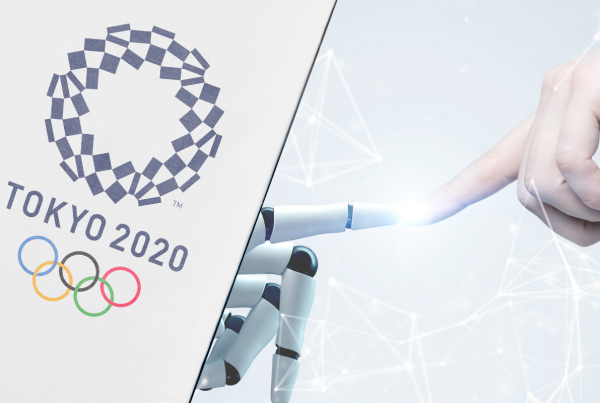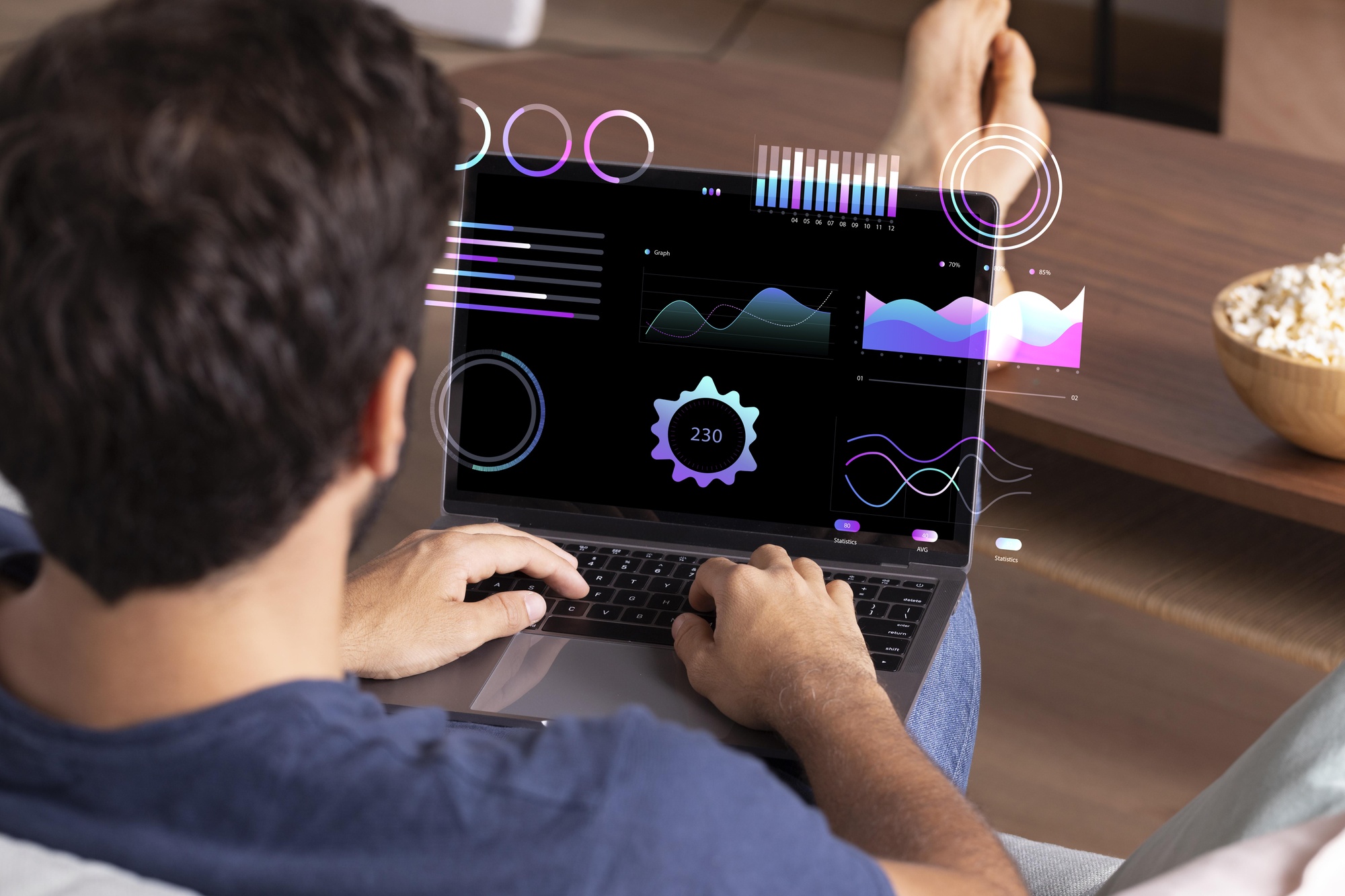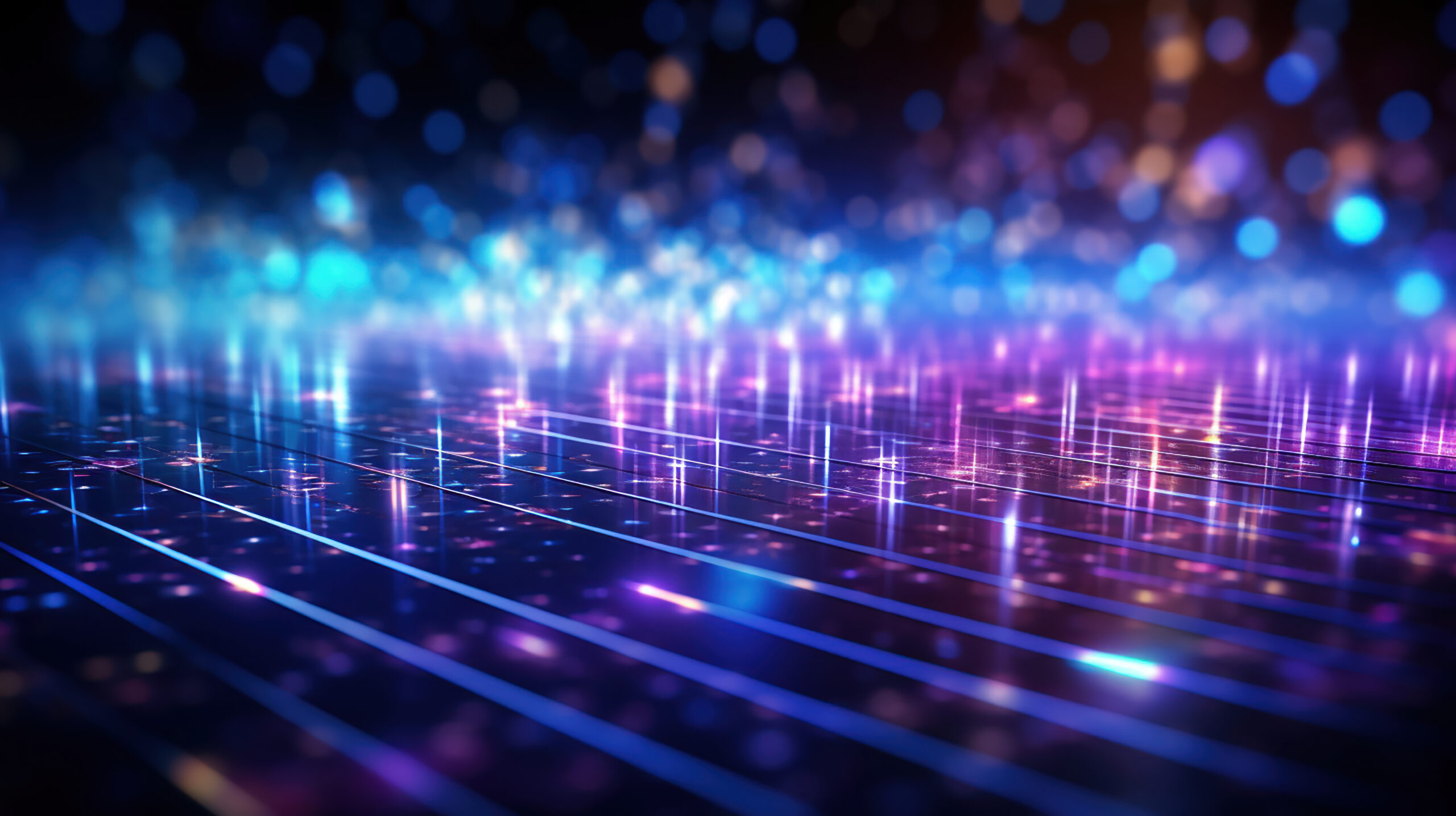

Five-star IT innovations in the world of the five rings
We are past perhaps the most extraordinary world game in the history of the modern Summer Olympics. Tokyo has brought a lot of excitement and so many novelties never seen before. It was unusual at first that due to the pandemic, a competition that carried 2020 unchanged in his name was held in 2021, but in the series of numbers related to the Olympics, this is by no means the greatest curiosity.
We are past perhaps the most extraordinary world game in the history of the modern Summer Olympics. Tokyo has brought a lot of excitement and so many novelties never seen before. It was unusual at first that due to the pandemic, a competition that carried 2020 unchanged in his name was held in 2021, but in the series of numbers related to the Olympics, this is by no means the greatest curiosity. This is how the Olympics were with the eyes of IT...
The employees of our company, United Consult, watched with excitement not only because of the great Hungarian successes — six gold, seven silver and seven bronze medals — the Olympics taking place in perhaps the most innovative country in the world, Japan, but also because the amazing development of the IT sphere has a huge impact on sport, which is one of Hungary's leading IT companies. As a company, it doesn't leave us cold either. The professional interest of our colleagues this time was mainly focused on innovations in the field of bigdata and artificial intelligence (AI) integrated into sports, which were reported by, for example, the American-Indian specialist portal Analytics Insight. So let's see what sensations Tokyo has served in the IT world!
From stopwatch to artificial intelligence
“This was the Olympics where artificial intelligence has now noticeably changed the role and importance of IT in sports,” emphasizes expert author Adilin Beatrice in an article. As he puts it, IT has been present in the world of sports for decades; this, as well as the burgeoning digitalization, partly due to the pandemic, have created an extremely strong foundation for the rise of artificial intelligence. (By the way, the relationship between sports and AI has also been written recently in their previous article on the IT aspects of the Premier League in the 21st century.)
Of course, the story did not start at all now, at the Tokyo Olympics, but goes back many years and even decades, in essence it is worth considering it as a kind of IT evolution process. Athletes and their coaches have been working on their own and competitors' statistics for a long time, but managing and analyzing increasingly complex databases has serious resource requirements. Advanced-minded, innovative athletes and their managers have long been open to the use of artificial intelligence in their daily work. This is because the technology not only helps to make strategic decisions related to sports, but also to enhance individual performance and even fine-tune a series of movements.
The infiltration of technology is not new, in fact, it began with the appearance of the first stopwatches - the author of the article looks back, then adds: the first significant breakthrough was made in 1948, when they began to use Omega's fantastic innovation, a camera capable of taking target photos. Today, the development has reached the point where the use of AI is fully accepted and even common in some sports in Tokyo, bringing a new color and new experiences to the Olympics for both participants and spectators.
The everyday benefits of AI at the Olympics
According to sports and IT professionals who are well versed in both fields, there is no question that data science and artificial intelligence will revolutionize the sports industry in a short time. In essence, this process has already begun, we have witnessed it in Japan as well. However, before we get to this point, the author of the cited article also mentions some practical examples of what is needed to organize a complex, large-scale event such as the Tokyo Olympics. Advanced IT services (including AI) have helped, among other things, to place athletes from many countries of the world in organized conditions, serve in the Olympic Village, so that participants (in addition to athletes, other members of delegations, competition judges, media representatives, etc.) can move around the airport without problems, between the Olympic Village and the venues of competitions in one of the most crowded cities in the world.
There are more and more news around the world about self-driving vehicles, however, thanks to the Japanese, in recent weeks ideas that until now seemed essentially futuristic have become a reality before our eyes.
Autonomous, Olympic vehicles were a practical solution to address mobility problems during the World Games. In addition, self-driving cars, based partly on machine learning, played a major role not only in the transport of athletes, but also carried sports equipment such as javelins, discos and throwing hammers between venues.
Communication has also been an important area of application of artificial intelligence, as running the Olympics — especially in a linguistically closed environment like Japan — is as challenging as organizing the construction of the Tower of Babel. More than two hundred nations of the world speak in more than a hundred ways, and AI has provided an easy passage between them even without knowing the most common foreign languages. Many may not even know it, but at the Tokyo Olympics, real-time translation systems supported by artificial intelligence were used so that people from different countries could understand the instructions. The language app, developed specifically for the five-ring event, was installed on smartphones or other compatible devices and interpreted in real time between participants. Artificial intelligence has been used in a wide variety of tracking devices, to support cloud-based radiation, in the use of robotic assistants and also in the context of 5G in recent weeks in Tokyo.
Artificial (sports) intelligence
If we go further with the benefits in terms of organization and infrastructure, seeing the examples in Tokyo, we can also conclude that the application of artificial intelligence represents an important breakthrough in the world of sports. For decades, it seems that competitors in certain sports have
they have reached the limits of human performance, which is also indicated by the fact that Olympic and world records are now being broken less and less often. After performance-enhancing drugs and methods of dubious origin, effectiveness and legality, artificial intelligence has finally arrived, which, through the refinement and fine-tuning of human movements, again allows athletes to surpass the great predecessors and decide peaks. Of course, ideally, it is not only the result that counts, but also that each competitor does not pay with his own health to achieve success. AI can also help to avoid overwork and optimize training work, thus avoiding serious injuries or even tragedies.
Now let's see some concrete examples of using AI from Tokyo!
Adilin Beatrice, author of the cited article, states that big data plays a drastic role in improving the performance of athletes, citing surfing as an example. The National Surf Association of the United States has used a lot of bigdata methods in recent years to help its athletes gain an advantage over their competitors. On the one hand, their own performance and on the other hand the results of competitors were continuously analyzed, but they were also used to monitor the physiological state of the athletes, including cardiovascular performance, sleep patterns or even changes in heart rate.
Here is another innovation. Intel and Alibaba have jointly developed 3DAT (3D Athlete Tracking), a system capable of closely monitoring athletes' movements and extracting appropriate performance-enhancing sequences from the data. 3DAT first debuted at the US Olympic trials and was already in sharp use in Tokyo. The AI-based system receives visual data from five specialized trajectory cameras and then sends it to the cloud, where the images are converted into relevant, analyzable information packets.
And finally, a curiosity that perfectly symbolizes the relationship between AI and sports. The humanoid basketball player with artificial intelligence from Toyota is a true legend of his kind. The robot made history in 2019, when it achieved the Guinness World Record for “the most consecutive successful basketball throws performed by a humanoid robot.” The robot also got a role in Tokyo: at each commercial break, it showed its throwing skills, which are constantly evolving thanks to AI.
Source: Analytics Insight















